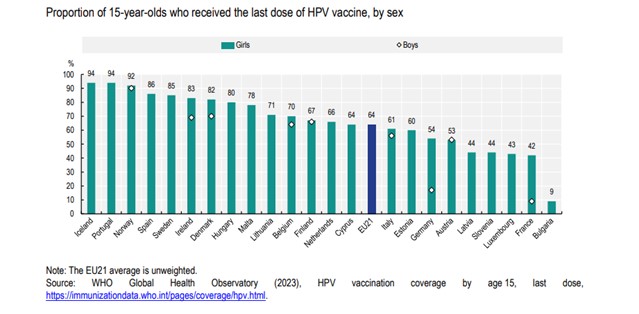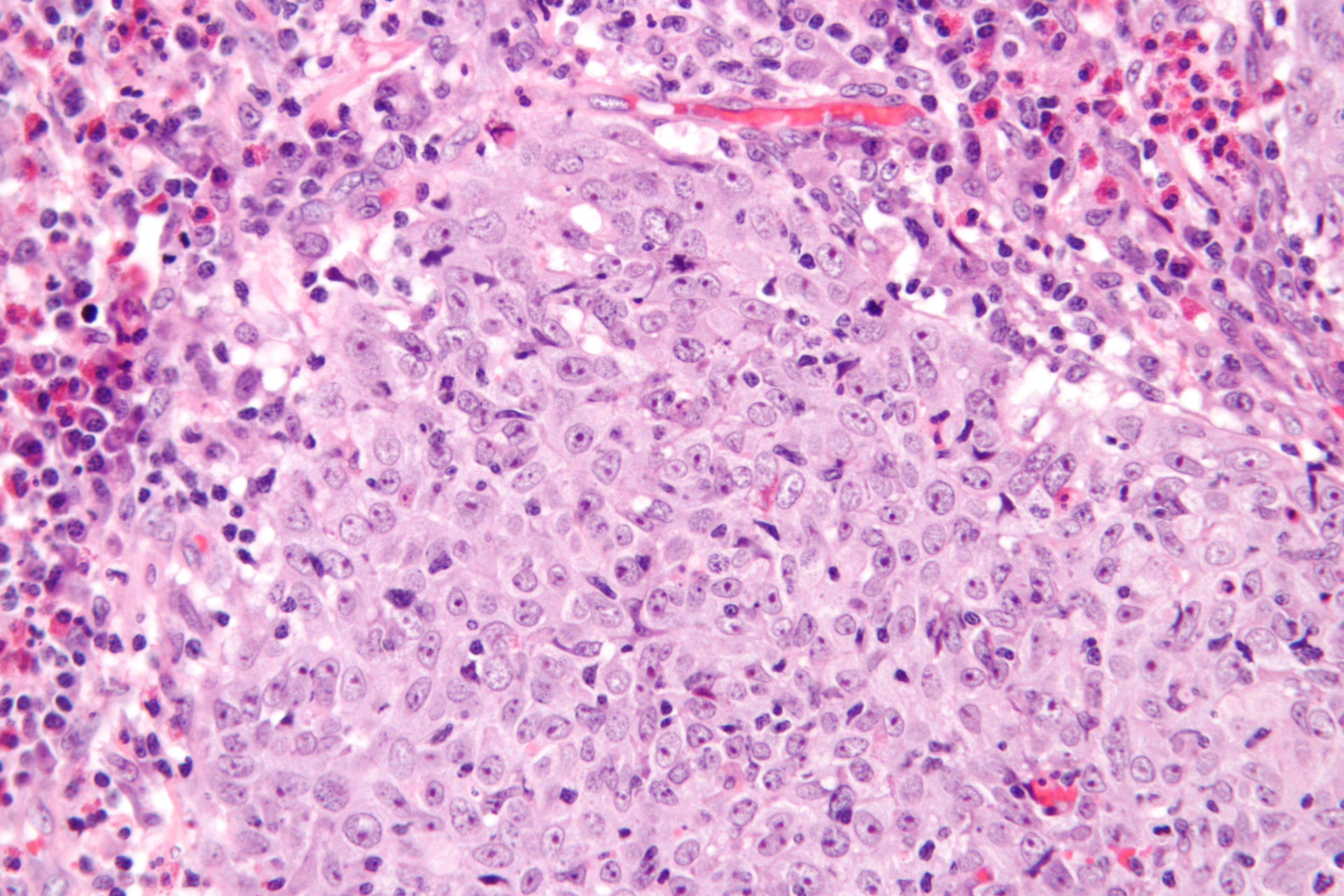Countries across Europe are to step up efforts to prevent certain cancers through vaccination, as part of a new drive to stop cancer-causing infections. Vaccines can play a role in preventing cancers, but vaccine uptake varies widely.
Now, the European Commission has unveiled a series of proposed measures designed to increase uptake of vaccines against human papillomaviruses (HPV) and hepatitis B virus (HBV), as well as improved monitoring of vaccine coverage. These recommendations will be discussed by national ministers at the key June meeting of the Council of the EU, currently chaired by Belgium.
Quick read:
- Vaccines can prevent liver cancer, cervical cancer and other cancers
- 95% target for hepatitis B vaccination for all infants
- 90% target for HPV vaccination in girls
- Calls for concrete target for HPV vaccination in boys
- New dashboard will track vaccine uptake
The move is part of Europe’s Beating Cancer Plan and reflects a growing focus on prevention. An estimated 40% of cancer cases in the European Union (EU) are preventable, according to a new report published by the Commission, but just 5% of total health spending by EU countries was dedicated to prevention in 2021.
New measures on vaccine-preventable cancers
The Commission unveiled a suite of measures ahead of World Cancer Day (4 February), aiming ‘to eliminate cervical cancer and other cancers caused by HPV, such as certain head and neck cancers and other anogenital cancers…and increase uptake of the HBV vaccination, notably to prevent liver cancer.’

It highlights the existing WHO goal of fully vaccinating at least 90% of adolescent girls against HPV by 2030 and calls for ‘concrete targets’ for vaccinating boys.
This is an area where approaches vary across Europe, with some countries already vaccinating boys and girls together, often as part of a school-based programme, while others are not yet offering free vaccination to boys. Uptake among girls also ranges from more than 90% in some countries down to single digits in Bulgaria.
The Commission does not set a specific target for vaccinating boys against HPV as this is a decision for national health ministers, but it proposes that governments define a goal ‘for the percentage of boys that should be vaccinated by 2030, in parallel to the one for girls’.

In addition, governments are urged to strengthen efforts to meet WHO targets of 95% coverage of childhood HBV vaccination. The Commission calls for more robust systems for monitoring progress towards those targets, with support from the European Centre for Disease Prevention & Control (ECDC), if needed.
‘There is still a long way to go in reaching these objectives,’ the Commission said in a press statement. ‘Many Member States are well below 50% HPV vaccination coverage for girls with limited data available for boys and young adults, and there is a significant lack of data on HBV vaccination rates.’
It calls on national decision-makers to:
- Provide vaccination free of charge and/or fully reimbursed;
- Ensure that vaccination is easily accessible, particularly to the targeted groups and vulnerable or high-risk populations;
- Integrate vaccine-preventable cancer immunisation into their national cancer plans;
- Strengthen communication efforts, particularly by highlighting the benefits of vaccination and addressing mis- and disinformation;
- Improve monitoring and reporting of vaccination coverage, to identify where gaps may need to be addressed;
- Set a concrete target for HPV vaccination for boys;
- Put strong electronic vaccination registries in place;
- Exchange best practices with other Member States to improve national efforts.
The Commision is planning to provide a model for communication campaigns that can be adapted to national needs. It also commits to improving monitoring across the EU, with the ECDC tasked with developing a new dashboard of national vaccination rates for HPV and HBV by the end of 2024. This could provide insights similar to those seen during the COVID-19 vaccine rollout, and become a template for monitoring uptake of other vaccines in future.
Financial support is promised to governments as they step up their efforts to boost vaccination and combat cancer. A Joint Action will be launched in 2024 to support Member States to increase HPV vaccination as well as to address communicable diseases such as Hepatitis and HIV/AIDS, funded with €20 million from the EU budget. This would complement the existing Joint Action on HPV vaccination, known as PERCH.
Stella Kyriakides, Commissioner for Health and Food Safety, said almost 14,000 lives are lost to cervical cancer annually, and over 16,000 new Hepatitis B infections are reported in the EU every year. ‘Prevention is always better than cure,’ she said. ‘With safe and effective vaccines, we have a historic opportunity to eliminate cervical cancer and other cancers caused by these viruses.’
Patients react: ‘a great start’
The package of measures was broadly welcomed by patient advocacy groups who view it as an important step in the right direction.
‘The proposed recommendations are welcomed as a great start,’ said Daniel Kelly, co-chair of the European Cancer Organisation’s action network on HPV. ‘However, there is more that could be included about the fundamental importance of vaccinating both boys and girls against [human papillomavirus], a target that every country in Europe must now strive for.’
The European Liver Patients Association said that while the initiative is admirable, addressing obstacles in hepatitis B vaccination will require a substantial collaborative effort among Member States. ‘Challenges include solid, strong data, widespread awareness campaigns, ensuring equitable access, overcoming vaccine hesitancy, and fostering healthcare infrastructure to administer and monitor vaccinations effectively,’ said Marko Korenjak, ELPA President. ‘The road ahead requires a united front to surmount these hurdles and enhance public health outcomes.’
HPV Vaccine champions
Separately, the Commission hosted a webinar in late January to encourage young healthcare professionals and students to become advocates for HPV vaccination. Several student organisations attend, including those representing trainee pharmacists, doctors and nurses. These young vaccine champions are seen as potential influencers, particularly as HPV vaccine is offered to young adolescents.
Read more:
How Europe aims to beat cervical cancer – VaccinesToday
Huge drop in cervical disease, thanks to HPV vaccine – VaccinesToday
‘PERCH’: European countries join forces to boost HPV vaccination – VaccinesToday




